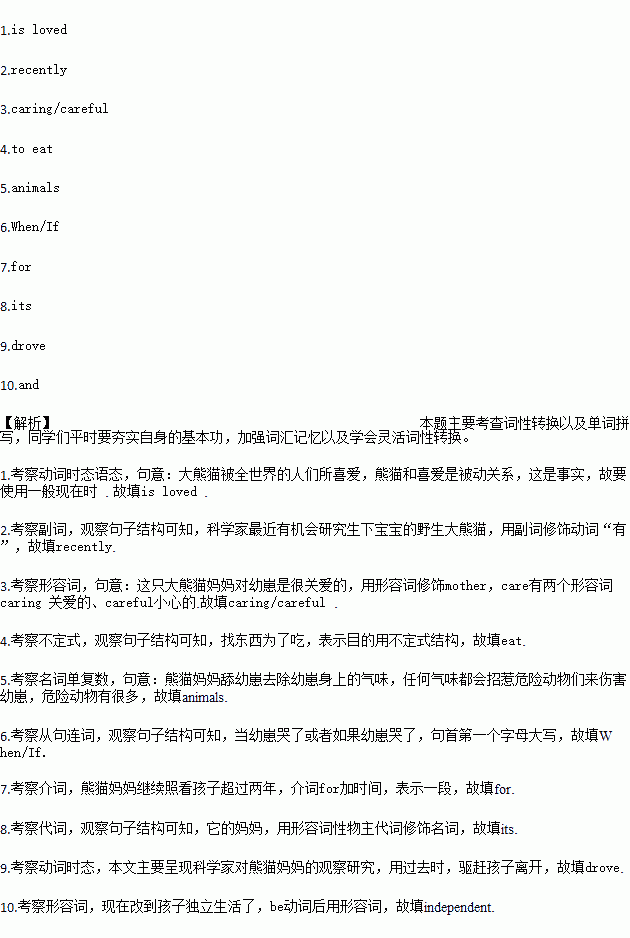题目内容
The giant panda1.(love) by people throughout the world. Chinese scientists2.(recent) had a chance to study a wild female panda with a newborn baby. She was a very 3.(care)mother. For 25days, she never left her baby, not even to find something 4. (eat)! She would not let any other pandas come near. She licked(舐,舔)the baby constantly to keep it clean. Any smell might attract dangerous 5. (animal) that would try to eat the little comforting pats. The mother held the baby in her front paws much the way a human does. 6. it cried, she rocked it back and forth and gave it little comforting pats, The mother continued to care for the young panda7. more than two years. By that time, the panda no longer needed8.(it)mother for food. However, it stayed with her and leaned about the ways of the forest. Then, after two and a half years, the mother 9. (drive)the young panda away. It was time for her to have a new baby, and it was also time for the young panda to be 10.(depend).
| A. | recognizing | B. | being recognized | ||
| C. | having recognized | D. | having been recognized |


 for stealing a horse, it would be ‘a skeleton in his family’s closet’. He really wouldn’t want any neighbor to know about it.”
for stealing a horse, it would be ‘a skeleton in his family’s closet’. He really wouldn’t want any neighbor to know about it.”